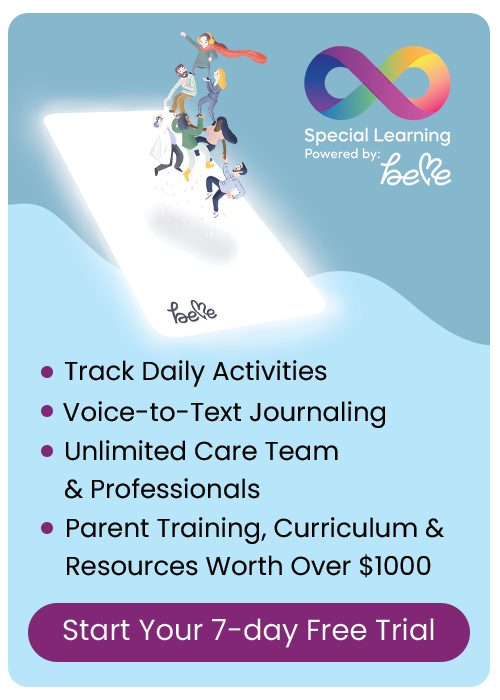Blog Categories
- ADHD
- Applied Behavior Analysis
- Autism Awareness
- Autism Service Providers
- Case Studies
- Dignosis
- Classroom Management
- Credentials
- Ethics
- Family Matters
- FAQs About LIVE Events
- Financial Planning
- Holiday Planning
- IEP's
- Panelists
- Private Equity in Autism & ABA Industry
- Psychopharmacology
- Sensory Processing Disorder
- Speech and Communication
- Subject Matter Experts
- Summer Planning
- Transition Planning
Out with the bad, in with the good
She has experience working with children, adolescents and adults in variety of settings including school, home and mental health facilities. In each of these environments, she worked closely with parents, teachers, and paraprofessionals to develop and oversee implementation of behavior intervention plans. She has extensive experience mentoring and providing supervision to RBTs, BCBA candidates and behavior analysts. As an Associate Director of Clinical Solutions for Special Learning, she is responsible for creating and presenting educational materials and promoting Special Learning’s mission to positively impact the special needs community. She received her Master’s degree in Special Education/ABA from The Ohio State University. She has been working with in the field of ABA for over ten years.
Out with the bad, in with the good
Do you work with you a student who engages in problem behavior? As you may know, behaviors do not just happen will-nilly, but are the result of other factors (this is also referred to as determinism and is one of the attitudes of science). It’s important to recognize most of those unwanted behaviors have proven functional for the student, so it’s necessary to determine an adaptive behavior that will take the place of the behavior you’re planning to reduce/eliminate from his/her repertoire.
How do you select an alternative behavior/communicative response topography—here are some considerations that were discussed by Tiger, Hanley, and Bruzek (2008):
o Effort required to engage in the response: The communicative response should be less effortful than problem behavior, at least in the initial stages
o In topography-based systems, such as sign language, the form of the response differentiates one verbal response from another (i.e., the sign for “play” is different than the sign for “break”).
o In selection-based systems, such as picture exchanges, the form of each response is identical (e.g., handing someone a picture card) and are differentiated by the stimulus selected. This may present challenges with individuals with disabilities that cannot discriminate because these systems require individuals to scan an array to discriminate between multiple pictorial or textual stimuli
o The likelihood that others will recognize and respond appropriately to the response (i.e., will novel people understand what the student is trying to communicate?)
o The consumer’s current behavioral repertoire (i.e., what can he/she already do?)
If you are hoping to reduce severe problem behavior, you might consider consulting a behavior analyst about functional communication training (FCT). FCT is an antecedent (occurs prior to the behavior) intervention that utilizes differential reinforcement of alternative behavior (like discussed above) to teach appropriate behaviors to compete with unwanted/problem behaviors. It is one of the most common and effective interventions for severe problem behavior (Tiger, Hanley, & Bruzek, 2008).
References/Resources:
Cooper, J. O., Heron, T. E., & Heward, W. L. (2007). Applied Behavior Analysis (2nd Ed). Upper Saddle River, NJ: Merrill/Prentice Hall
Tiger, J. H., Hanley, G. P., & Bruzek, J. (2008). Functional communication training: a review and practical guide. Behavior Analysis in Practice, 1, 16-23.
RECOMMENDED PRODUCTS
Global ABA Practitioner Kickstart Program
Build Your Own CE Library – Gianna Apicella (20 CEs)





